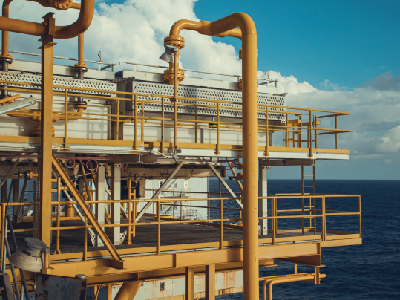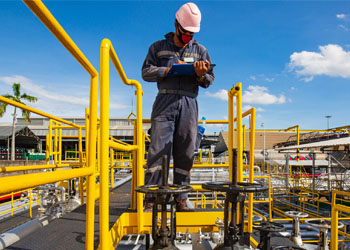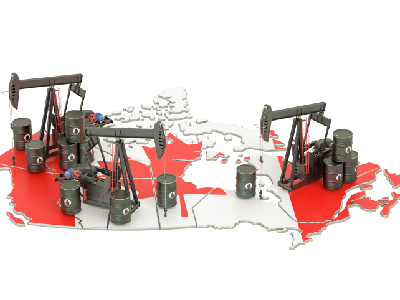Preventive maintenance of equipment in oil refineries
Course Overview
Preventive maintenance plays a vital role in ensuring the efficiency and continuity of operations in oil refineries. Its goal is to detect potential failures early and perform necessary repairs before major breakdowns occur, which helps reduce downtime, improve equipment performance, and extend its lifespan. This maintenance relies on predefined schedules and advanced techniques to ensure equipment is kept in good condition. This training program aims to equip participants with the knowledge and skills necessary to effectively implement preventive maintenance for equipment in oil refineries, with a focus on best practices and modern techniques used in this field.
Course Objectives
- Understanding the Principles of Preventive Maintenance for Equipment: Familiarize yourself with the basic concepts of preventive maintenance and its importance in the oil industry.
- Enhancing Planning and Implementation Skills: Learn how to prepare preventive maintenance schedules and perform regular equipment inspections.
- Developing Strategies for Early Fault Detection: Gain the ability to use early fault detection techniques to identify potential issues.
- Applying Modern Inspection and Monitoring Techniques: Learn how to use inspection and monitoring tools to ensure the quality and efficiency of equipment.
- Familiarizing with the Latest Developments in Preventive Maintenance Techniques: Acquire knowledge of the latest tools and technologies used to improve the effectiveness of preventive maintenance.
Target Audience
- Maintenance engineers and technicians working in oil refineries.
- Operations supervisors responsible for equipment performance and sustainability.
- Project and facility managers aiming to improve performance and efficiency.
- Quality and safety experts ensuring compliance with operational standards.
- Technicians specialized in operating and maintaining industrial equipment.
Course Modules
Understanding the principles of preventive maintenance of equipment
- Defining the concept of preventive maintenance and its objectives in oil refineries.
- Review the different types of preventive maintenance, such as routine maintenance and predictive maintenance.
- How to determine equipment preventive maintenance needs based on operational data.
- Examples of successful preventive maintenance programs in the oil industry.
- Develop strategies for implementing effective preventive maintenance according to operating conditions.
Improving planning and implementation skills
- How to set up preventive maintenance schedules based on equipment usage.
- Strategies for implementing periodic inspections and visual and mechanical inspections.
- Examples of preventive maintenance plans and periodic inspection procedures.
- Develop skills in organizing and coordinating maintenance operations with work teams.
- Evaluate the effectiveness of maintenance schedules and make continuous improvements.
Develop strategies for early detection of faults
- Strategies for using non-destructive testing techniques to detect potential faults.
- How to use diagnostic tools such as spectrometers and ultrasound machines.
- Examples of using modern technology to identify potential faults early.
- Develop skills in interpreting inspection data and using it to improve maintenance.
- Evaluate the effectiveness of early detection strategies and continuously improve them.
Application of modern inspection and monitoring techniques
- How to use modern inspection equipment such as thermal cameras and vibration analyzers.
- Strategies for monitoring equipment condition and analyzing data for early detection of problems.
- Examples of advanced inspection applications to improve equipment efficiency.
- Develop plans for using inspection and monitoring techniques in daily maintenance.
- Continuously evaluate and improve the effectiveness of screening and monitoring tools.
Learn about the latest developments in preventive maintenance techniques.
- Review of the latest tools and techniques used in preventive maintenance.
- Using technology such as the Internet of Things (IoT) and predictive analytics to improve maintenance effectiveness.
- Examples of modern technology applications to enhance equipment performance.
- Develop strategies for integrating technology into daily maintenance operations.
- Evaluate the benefits and challenges of applying modern technologies in preventive maintenance.
Instructor
Name: Qais Akkara
Specialization: Human Resources Management, Administrative Decentralization, Strategic Planning
Certificates: Master of Business Administration (MBA) Master of International Humanitarian Law and Human Rights
Core Programs Trained:
Bio: Qais Akkara, Chief Executive Officer and Deputy Director at the Tunisian Prime Minister’s Office, has distinguished experience in strategic planning, human resources management, and support for decentralization programs. He has worked as an expert in several national and international programs, and contributed to the preparation of practical guides and reference manuals for developing administrative and functional performance. He has held several advisory positions and contributed to the formulation of laws and procedures to enhance transparency and administrative efficiency
- Languages: Arabic
- Program Levels: Operational level
- Venue: Company Headquarters
- Hours: 20
- Location:



.jpg)







